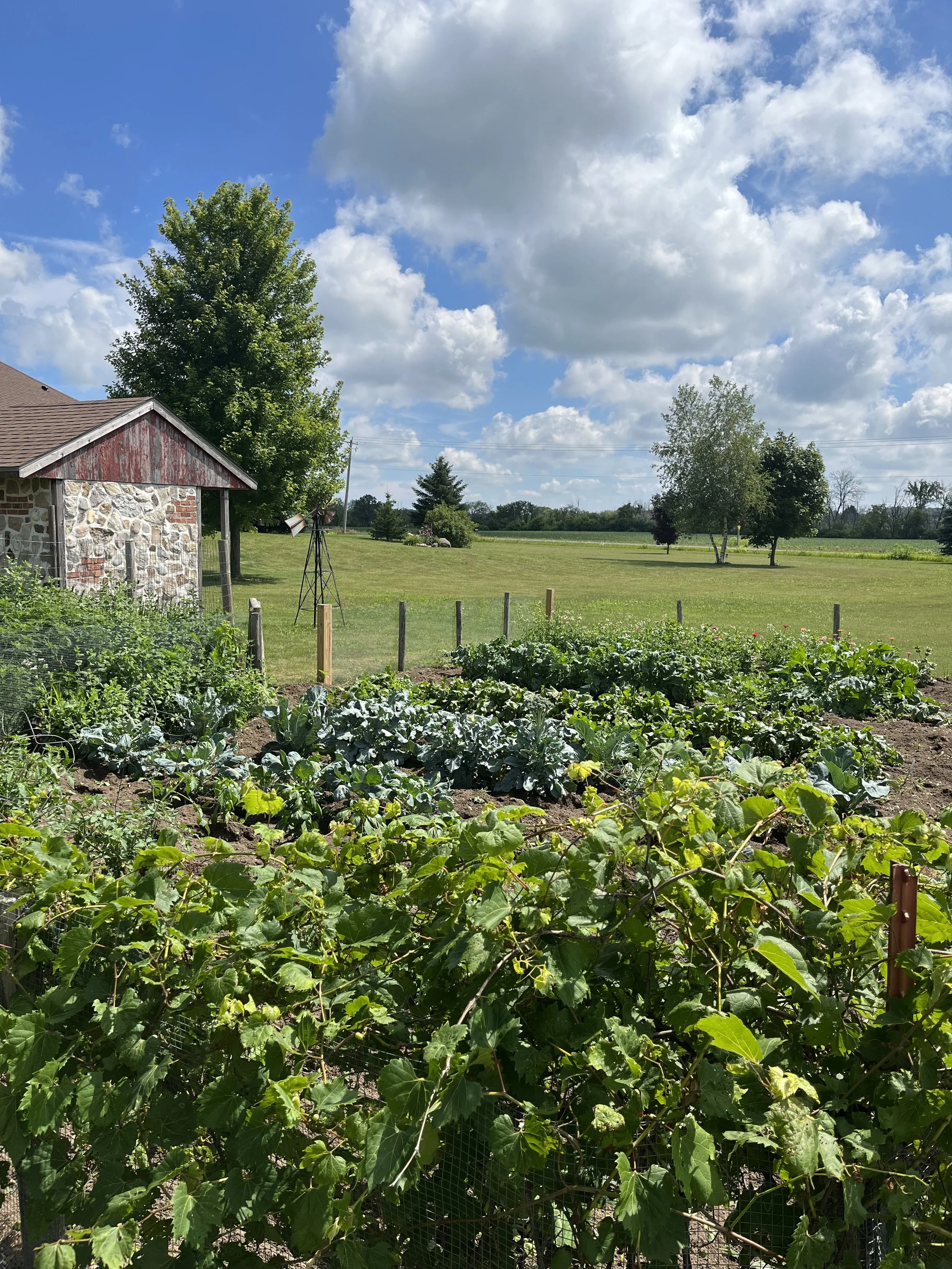One Vessel
Dr. Paula Carlton, Doctor of Nursing Practice
Young Adult and Adult Medicine Metabolic, Hormone & Body Composition Focused Practitioner
Advocate Health
205 Valley Avenue
West Bend, WI 53095
“Our bodies are our gardens, our wills are our gardeners”
-William Shakespeare
Philosophies- ever changing, always learning
-

Why One Vessel?
Our spirits and energy enter this life on earth in bodily form. This one vessel is there to carry us from our beginning to our end. As amazing human beings, we have genes, many similar to eachother, some different and also interact and experience life around us so uniquely. Science says influences such as organ health, hormonal communication and body composition all orchestrate our healthspan and lifespan. To me, how healthy we are and long we live depends on how harmonious the interplay is with our physical, mental, spiritual and social well-being. And of course, God :-). Health and well-being evolve continuously and is driven by fuel and power. I believe our one vessel is very individualized, and it’s not meant to be perfect. We can always be working on it. While we age, it does not mean we need to become unwell or frail. And if we do, we can bounce back. We are resilient. One of the ways I like to focus on my one vessel with what I call the 5 S's- strength, social, satiety, sensuality and stillness. How do you help your one vessel? What’s your definition of health? What are you doing to work on your healthspan and lifespan?
-

Body Diversity - Strength at all Sizes
While 99.9% of human beings are identical in our genetic makeup, your one vessel is unique and functions with a multitude of varying intrinsic and extrinsic mechanisms. First and foremost, just love that! You are you. You have your own unique story and it’s a beauty! While each vessel has a weight or relative mass, I like to understand your vessel’s body composition which includes the skeletal muscle mass and apipose (fat). These two important organs, yes- organs, are among the many other endocrine glands that produce hormones controlling how we grow, metabolize and function. It’s important to understand changing body composition, if a person desires this, is harder (or in some minds easier!) than we think, and it can be done. One really important point is to realize we are not “losing cells” (for example adipose cells), but can burn the fat stored within each cell causing them to grow smaller. The same is true of muscles. It’s why I like to think of the importance of the right fuel. This can also help us appreciate our vessels as unique and perfect at any given point. We already start out with the “right amount” of muscle and adipose; organs we all have. It can help us appreciate “stubborn areas” and the complexity involved in how we change our vessels with a longevity goal of being strong. What we put in to our goals, we will get out of our goals. Side note and very important, acceptance and confidence in your unique vessel is always my goal. If you have a negative body image or a significant preoccupation with your weight or shape, this page is not for you.
-

Activity
Movement is one of your vessel’s most basic functions and is built to move. Moving is healthy and should feel good. Movement improves mood, helps blood flow, strengthens bones, and helps brain health. It is medical medicine. It can also be a great way to connect with others. Some move for fun. Others move intensely for muscle growth or adipose cell size reduction. In some cases, we get to a point where we are feeling we are doing it all right and still challenged. What do we do? When it comes to vessel composition changes (if that is a goal), one says cardio, another says only weight train. This is another time to remember you are you. What do you enjoy? What works or does not? I love variety- the sweat, the heart rate, the dopamine hit. Make a list of things you love doing and how it makes you feel now in your life. Sometimes you may need to be creative to find the time to move. Consistency is key. Movement can create and/or release energy. If you are feeling “filled with energy” or anxious, slow movement may be best. If you feel you need to increase your energy, aerobic activity may fill that need. We all know since muscle equals longevity, it’s vital to engage those muscles. Most studies support right away in the morning is best but don’t count out anytime! Whatever you do, make sure it is safe for you. Many times, and I would suggest all of the time, a trainer can initially help. I have realized personally I have felt my best when I have worked with a trainer. Depending on wherever you are in your activity journey, remember it can also be the activities throughout the day that add up (called NEAT)- check out this article to learn more about various ways the body expends energy https://www.hsph.harvard.edu/obesity-prevention-source/energy-balance/
-

Fuel
I have said it a few times already- fuel your one vessel. What is fuel? It goes deeper then what we think of as food. It’s purpose is to produce power and direct hormones. When we think of how we fuel our body, it’s important to think about the how, what, where, why and with who we eat. Good nutrition is what fuels our vessels. A “diet”, as we call it sometimes, can be different for everyone and might be different throughout our lifespan and varies, sometimes tremendously, among family and friends. Food availability and preferences can have cultural and regional influences. Usually, getting the optimal fuel means focusing on water and a variety of whole foods, natural and unprocessed. And that can be it, period. No further explanation needed. We also hear of lean proteins, fiber, healthy fats and complex carbohydrates. While all macronutrients are important to learn about, the most confusing can be carbohydrates. I like to say fiber, instead of carbohydrate as it is a carb but with power and plays an important role in metabolism and many medical conditions. https://www.hsph.harvard.edu/nutritionsource/carbohydrates/fiber/
We can talk all day on this topic. Fuel. Of course we need protein, ie-amino acids, chains of these-peptides. Oh, how I love peptides. And fats- so good. Whether your vegetarian or carnivore in your eating style, each of these are valuable and essential.
What type of fuel are you putting into your one vessel?
Essential topics for one vessel health and longevity
My experience in healthcare and my decision to focus on metabolism, hormones and body composition
There is so much to talk about and yet no easy way to talk about something so complex, sometimes stigmatized and not completely understood. I have been in the healthcare (some refer to it as “sick care”) field for 35+ years. I would much prefer to help everyone live well before sickness sets in, particularly the bigs things- mental health, cancer, heart disease, and diabetes as I see people with these ailments. Healthcare is a business and one that has become specialized. Family Practice delivery has greatly changed as a result. “You must welcome change as the rule, but not as the ruler.”- Denis Waitley. My focus, which are based on my values, has always been wanting to help and advocate for health, being strong and having a self-empowered well-being. I have had the honor and privilege to partner with patients for 27 years. During that time, I delivered a consistent message- you are in control of your health and longevity…and do what you can to take care of your one vessel. During this time, I wanted to understand why we get sick as well as stay well. I earned a doctoral degree and certification/additional training to better understand and help prevent and manage metabolic diseases including the complex disease of obesity. Understanding the unique strengths of your metabolism and the factors contributing to inflammation is crucial for achieving optimal health. Our God-given diversity in body types, along with the interplay of intrinsic and extrinsic factors, plays a vital role in supporting our overall well-being. Too often, the focus can be on one thing- this supplement, this diet, this form of exercise. Your vessel is composed 30 trillion cells. It is not likely one item is the fix, if your vessel at all needs fixing. With over 50 hormones messaging various functions and processes, I also recognize how gender specific hormonal fluctuations, both internal and sometimes external (birth control, medical hormone replacement) impacts us differently. I do not pretend to have every answer but am here to explain some of the why and provide guidance and/or resources.
This is your journey. I am on my own as well. This site is intended for patients who will see me in my medical practice for metabolic diseases and obesity. It will provide some resources to how I approach practice. If you are reading this, please let me know what questions you have and, as always, what I may have forgotten! The world is packed with information. Even after 30 plus years in healthcare and 50 plus years in life, I am learning too! I see this through my lens. You know yourself best.

Links
I don’t have all the answers nor can I do this on my own.
Repeat after me ;-)
This is why it is good to be surrounded by people who help with creating a culture of health and strength that aligns with our purpose and goals. Here are some I like and you may too!
A few of my favorites resources, near and far. Would love to hear yours!
TRiE Fitness & Nutrition coaching Kewaskum
Kettle Moraine YMCA
Yoga and massage at Blue Luna
Pilates and Health- Tiffany
Wellness for Life
Lynn Baierl- massage
Athletic training and performance - Gaining Grit
Integrative and functional medicine
Guided meditation
Authentic Wellness- Coach Missy Propper
Plantonic Cafe
Lotus Be Well
Kewaskum Coffee Corner
Robbi Parrent Tissue healer/peptide supplements
NAMI Washington County, WI
Health at Every Size (I’d like to rename this strength at every size)
Aurora Health Enews
Physical activity
Inbody scale review
HMR
Bariatric surgery
Stubborn fat- lipedema
Integrative Medicine
Considering medication
Stigma
Bias
Understanding metabolic syndrome (though this is only the basics)
Podcast expert - Huberman
Podcast and resources Gaining Health
Sugar- 61 names, how much
Wisconsin Collaborative Excellent resources- meal plans, trackers, etc
A science article on why we should prevent and also treat chronically
Family - How to raise healthy eaters
Different types of medications
The 4 essential pillars
Fullscript supplement dispensary
West Bend Farmers Market
Ruby's Pantry
Skin goodness
Lifestyle medicine
Eatthismuch meal planning
Full Plate Living- Fiber
Blue zone eating
Favorite apps: Myfitness Pal, Yuka, Noom, Headspace, Calm, Elevate, Gratitude, StepBet, FitOn, DownDog, Baritastic & Intend
Some interesting books: Why we get sick by Dr. Bikman, Six factors to fit by Dr. Kushner, Habits of Health, Attention, the Bible :-) and so many more!!!
Some of my personal family/friend favorite influencer resources: Kate Anderson- mom, teacher & healthcoach , travelwithdoug on instagram for worldly travel experiences, urbanfarmgirl on facebook for home decor inspiration, sacred.bean on instagram for the art & experience of coffee,
One Vessel Approach
-

Health habits
The first thing before even starting on a journey is to know where you are and where you have been. I often find creating a timeline in life may be helpful. For instance, if you are trying to increase strength, it may be helpful to create a timeline of what your strength has been over time and why- when where the highs and lows? How long have you been where you are? What insights do you gain from that? It might also be helpful to create a vision board- https://www.healthcoachinstitute.com/articles/how-to-create-a-vision-board/ or how about journaling which is validated in research to be very helpful https://www.eatingwell.com/article/7923245/health-benefits-of-journaling/
One of the hardest things about wanting to change our body composition is that we often find out, just like any change in life, it is not one thing. Health habits can mean there may be various things- nutrition, exercise, sleep, stress, mood, hormones, etc, etc that impact. What’s sometimes even tougher is when some of those things are really hard, if not seemingly impossible to change. The good news- is when you understand all of the pieces involved, you bite off what you can- create a I-S.M.A.R.T goal (the "I" stand for why it is important to you!) and then move forward from there. Goals can help create a habit and one habit can turn into a consistent way of life.
-

Nutrition, exercise- what else?
Medication is an add on tool. It is something that may be added because you have tried so many things along the way and are frustrated. Medication is not for everyone. As with any medication, there are potential risks and side effects. It is imperative that an intensive plan be followed. Please remember many of the medications available have been available for years. In some cases, and this is interesting to me, when these same meds were not studied for weight loss but other medical conditions, the weight loss was not as robust. What does that say- no doubt some medications are currently doing an incredible job of helping with insulin secretion and glucagon production while also attaching to the stomach and intestines to help with hunger and satiety, what is also important is the counseling and coaching that go along with that. If you do decide on one, there are some “rules” I ask you follow. Checking in once monthly (in person or by video) is recommended for the first 3 months and continued with a regular cadence depending on how you are doing and what the need is. That is because behavioral changes and management require ongoing attention. The research even states if we can do this 12-26 times in 1 year, that will also help in long term maintenance. I am finding an amazing thing, particularly with the GLP1/GIP RA meds- it impacts so many other body systems, including, dare I say, motivation to assist with change. It still can mean it is more than me you need to be meeting with. When we meet or message with each other, we review items such as blood pressure, pulse, sleep, stress, medication response, nutrition, exercise, goals, body composition, and any concerns.
-

Fuel
There are bad, good, better and best ways to fuel your body. And while there can be some general ideas, we all are different and by no means perfect 100% of the time. Our body is composed of water, lean bone and muscle mass, fats (adipose) and other organs (adipose is actually an organ too). While the body needs various macronutrients and water to survive, the body utilizes proteins to maintain and replace tissues and to function and grow. Proteins are the building blocks of all we do and depending on our size, functioning and activity, we should intake a good amount. I like to utilize the Inbody scale to help estimate this with you. Check this out for other ideas of how to find protein sources: https://www.dietdoctor.com/high-protein/eat-more-protein
Our body also relies on fats and fiber (carbohydrates). How we fuel our body changes over time and is complex. We may have aversions, intolerances or even allergies that challenge. We know as we hormonally change, our fueling likely will have to change as well.
Our food system has it's own challenges. A label may say low sugar and have 5 ingredients that are sugar. Ingredients of a "healthy" product may be too numerous and artificial. I value whole food, gardening and meal prep. That's not everyone's cup of tea. Small, meaningful and affordable changes are possible. Please don't sit back and wait for our food system to change. One way we can change it is in the way we purchase. A meal that fuels generally requires a little prep work. Though that is why I love whole foods- an apple, besides a rinse, may require none.
-

Metabolism
Some things we cannot change- some parts of our genetics, viruses, age, prior events. We form our body composition at various points in life. For instance, fats cells form in the final stages of the developing fetus and at puberty. These are 2 times we are not even aware, much less "in control" of this formation. It’s important to realize the first stop on this journey should be acceptance of where you are right now! Exactly where you need to be…your beautiful self with a life full of experiences that have shaped you for today. If you are ready and you feel you want to, getting a better understanding of your current state, how you got there and what your vision is for the future are great places to reflect on. Once we better understand how our own individual metabolism can influence not only how our body uses the fuel we put in and burn off but how it also effects hunger and feeling satisfied then we can better formalize a plan moving forward. One of the hardest questions to address is “hormones”. Why? Because we are hormonal beings! We often think our male or female hormones are to blame. Or we hear of that awful cortisol response! No doubt, these are factors. We have 50 others. Hormones are the communicators. Puberty, pregnancy, perimenopause and menopause are all key times of vessel wiring and firing changes. I think the hardest thing about that- while our vessel changes, we often don’t. What I mean is we expect all of this change to just accept what we are doing and behave like it did. I have heard it “I am not doing anything different” or “I am just getting old”. And that is ok if you are content. We decide. If you are not content, you may want to take time to sit down and think about what you may need to change to help. Maybe it’s nutrition, a different type of exercise, prioritizing sleep, avoiding alcohol, or finding ways to manage or perceive stress response. Gosh, that’s all hard. Other tools may be needed for this. Sometimes gaining strength is a secondary outcome once the pieces of it all are addressed to help recharge the metabolism.
I hope to help others in their pursuit of living well.

